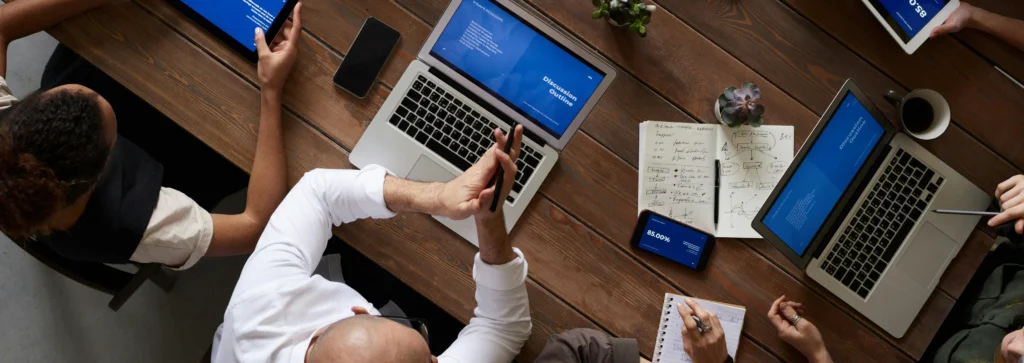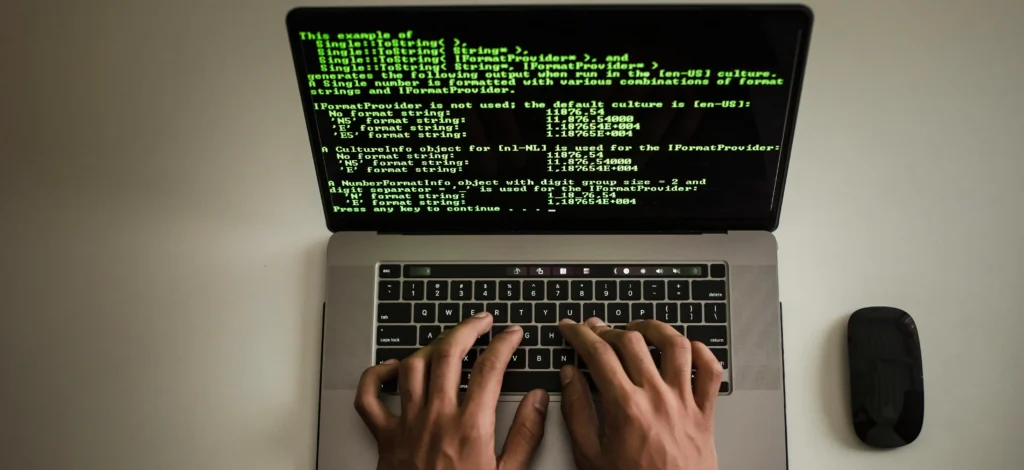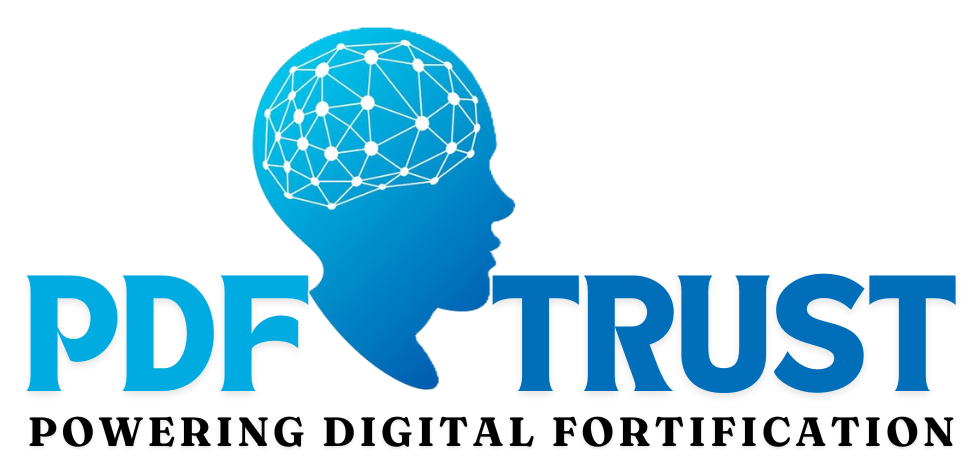I hope you are all set to indulge into our Internet Security Awareness Training 2024. Here in the program, I will be sharing with you how you can protect your data; the act of securing digital content. No matter if you have a computer at your workplace, studies or at home it is always critical to know how to protect yourself and the information that is in your computer from any threats that comes with the internet.
Throughout this training, we’ll cover various topics, including:
| 1 | Password Security | This program will address how individuals should set good passwords and the reasons why they should not share their passwords with anyone. |
| 2 | Phishing Awareness | Awareness on potential phishing emails, their nature and methods that need to be employed in order to dodge the relevant malicious scams which attempt to gain the passwords to individual’s accounts. |
| 3 | Data Protection | Learn the rationale for protecting data and information and the procedures for data management to address risks in today’s complex environment. |
| 4 | Device Security | Learn about how it is possible to safeguard your working tools, hardware devices like computers, mobile phones, and tabs from viruses and any form of hostile software. |
| 5 | Social Engineering | Discover social manipulation techniques that hackers utilize and how cybersecurity measures can prevent a person from falling for such tricks. |
| 6 | Safe Internet Usage | Accomplish the connection between the risks involved in browsing the internet and safe ways of using the internet to avoid being a victim of cyber criminals. |
| 7 | Security Updates | Be sure to respect the importance of timely security updates and patching as it will protect your devices and software against prevalent threats. |
At the completion of this training, you will gain vital knowledge and understanding in the fight against cyber threats and be equipped to contribute to the improvement of cybersecurity for oneself and one’s organization.
I hope this article has helped illustrate that cybersecurity is something that all of us should take a collective stand against and preventable incidents must be addressed by collective and concrete actions.
In this Internet Security Awareness Training 2024, you’ll learn:
| 1 | Online Safety | Get to catch up with new features on steps to take to ensure that one does not become a victim of an online fraud as well as lessons on how to protect ones privacy on a computer. |
| 2 | Strong Passwords | Visiting the website security Zen, determine whether your passwords are sufficiently strong. Plus, get a method of creating long passwords that will be difficult for hackers to guess while being easy to remember. |
| 3 | Identifying Scams | Learn the way to distinguish between the actual and common fake emails. |
| 4 | Safe Web Browsing | As will be explained further, learn how you can surf the internet safely, to avoid coming across unwholesome sites. |
| 5 | Secure Email | Find out how you can send emails in a more secure and leak-proof way so as not to inadvertently disclose private information. |
1) Password Security
In the modern era where everything is done electronically or online it is very significant that you use good passwords. Password is that special key which secures all your belongings and personal items online from the ill-intentioned villains. That is enough about passwords as thieves let’s discuss what can be done to make sure that your passwords are good enough to guard your accounts.
Also, avoid using dummy password such as password, 123456 etc. This type of passwords can easily be cracked by the hackers. However, to provide maximum protection, try to create your passwords long and include both big and small letters, numbers and underscores such as ‘!’. or @. Thus, more complex passwords should be used to cater for the need of sensitive information protection of your things.
Never re-use the same password in a different variety to different accounts. If someone knows your password of one account, then he will also be able to open and gain access into any other additional accounts that you have. To said, using a specific tool known as a password manager is a good strategy to apply which will help you to remember all the passwords.
Also, probably, one should change passwords more often; it is better to be excessively cautious nowadays. If you are in a situation where you are suspecting that someone is attempting to gain your password, you had better change your password instantly.
So in a nutshell if you ensure your passwords are secure and follow these tips above you can guarantee to protect your own accounts from the so called bad guys on the internet.
2) Phishing Awareness

Hello once more to those of you who have returned from Cyber-space land in one piece without being caught in a con called phishing. Phishing: It is a kind of fraud where the bad guys attempt to mislead or deceive you into submitting your beneficial information such as passwords and credit card numbers, through an appearance of a reputable person or organization. These scammers may offer to send you emails or messages that look quite genuine, but that is simply a cover to steal from you.
Well, these questions raise the following question: how can you find yourself in a position to identify a phishing attempt? First, be careful of emails or messenger where people request your SSN, Credit card numbers or any critical information which show looks for an urgent and a dangerous message. I know for a fact that any company you work with or deal with will not ask you for your password, details to your account, or your financial information, any time.
Second, make sure the email address that the message came from or the name of the website that has sent it to you is genuine. Phishing emais may appear to be from a legitimate business but if observed carefully it is observed that there may be some spelling mistakes and the domains used are not authentic.
Here we are talking about Scam Emails and Messages, which can also come to your Mobile Phone, if you’re unsure if the email or the message you received is genuine, do not click on any links that are provided or open any attachments. However, the best thing to do is to pick up the phone and call the company at an approved number or a company website to check on the authenticity of the request.
In conclusion, it is crucial to observe some rules on the use of an e-mail, its content, and links to prevent becoming the victims of scams and having personal data stolen.
3) Data Protection

Data protection works in a way that it covers your information with a protective layer to reduce the chances of such wrong people getting access to it. In the modern world, to manage data protection against hackers and all those evil guys who want to take it, you need to have some basic knowledge of cybersecurity.
To start with, make sure you are using strong passwords on all accounts that you own or are in some way connected with. Similarly, a good password is that key which helps in guarding all the data from being accessed by other unauthorized persons. Avoid using words and characters of a similar set and length and do not use the same password for different applications.
Next, the following preventive measure is advisable: Remember, what you publish online is a matter of public access! Never forget that you can easily get caught, therefore, do not publish your full name, address, or phone number on social networking sites or any other websites. Some people embrace anonymity because once something is on the internet, it is almost impossible to get rid of it.
Installing security tools such as anti-virus, anti-spyware tools, and firewalls on the devices will also be useful. Such applications also act as antiviruses and protect other data from cyber threats and invasions.
Lastly, it is recommended to do backups of the files you do not want to lose frequently. That way, if the device is lost or stolen, the user is assured of not losing their data as much as they would have done.
These are simple precaution measures, which when employed, will go a long way in ensuring that your data remains protected and free from the clutches of malicious people.
4) Device Security

That means in device security it mainly deals with the protection of gadgets such as a phone, computer, or even a tablet from bad people who would like to take advantage just to get your details of the same gadget. Just like few people remove the lock to their front door and leave their home open for anyone to gain access, it is the same way taking measures that secure your devices will in deed safeguard your information.
First and foremost, one should always ensure that the software on his/her device has the most recent updates. This means such things as your operating system, other programs you might be running on your device, and security software applications. In improving the software solutions, developers ensure you are provided with the newest shields against viruses among other diseases.
Passing of complicated and secure passwords or passcodes is also essential. It is such as they have the key to their device and no one knows about it. Choose a strong password that doesn’t identify you clearly and do well not to disclose it to anybody you cannot trust.
There are also other precautions that can be taken while using mobile devices to enhance its security; One needs to be very careful when downloading or getting apps installed in the devices. If you decide to download apps and programs, ensure that they are from reputable firms and not imitations, such as from app stores and authorized websites.
It is always a relief to have a means by which one could track it or perhaps have your data wiped remotely in the event that the device ever got lost or stolen. Social networks and many other communication services are integrated into most devices or have an application that can be used for this purpose.
In this way, NetSafety wants to give you a few tips to make sure that your devices are safe: Simple steps to enjoy a safe online experience.
5) Social Engineering

In the layman terms, social engineering is a malicious attempt by bad individuals or organizations to deceive you in a social context and get your personal details or compel you to perform illicat actions. In the case of Bezos and other celebrities, while the perpetrators do not use high technologies to get access to your accounts, they apply psychological techniques to influence you.
A common social engineer trick is phishing where an attacker tries to make you think that there is an official communication that is sent from an entity that is trying to dupe you in some way. They might pose with familiarity with you or even fake identity of positions you trust such as a friend or your bank and request you to follow links or offer your passwords or banking details.
One of the tricks is known as pretexting and in this, the attacker feigns a situation to make the victim provide information. For instance, they may ring you under the guise of calling from your company’s IT department and proceed to demand your login details to address a concern regarding your account.
To avoid the risks of social engineering attacks, one should be wary and more so be suspicious of Users/applicants who make unsolicited demands for data or insists on the performance of specific tasks[,] or making request[s] under unexpected circumstances. It is always important to verify the identity of the person or organization that you are being asked to help and don’t share any personal or sensitive information especially if you have not verified the individual or organization.
In this case, paying attention to how social engineers manipulate you, can save you from such tricks and thus safeguard personal details from malicious hackers.
6) Safe Internet Usage

I maintain that safe internet usage is as important as having a compass that will direct you to safety away from any dangers lurking in the vast territories. So, regardless of your activity – from using the internet to managing your purchasing or communicating with your friends on social networks, you should always pay attention to your security level and personal data protection.
Firstly, I Want to check all your devices and have active and updated security programs on it. This may refer to products such as antivirus solutions and firewalls which are useful for identifying and preventing threatening attacks.
To avoid exposure to malicious contents, you need to be careful when selecting websites that you want to visit and links that you would like to click. Do not visit other sites, which allowed the virus to get there and do not click on the pop-up ads and links, as they are phony and lead to phishing scams.
Since many people share their personal information every day on social media, this is very important to ensure that you do not disclose your personal details without necessary reason. Do not share personal identifiable information [PII] like your full name, address and any other financial details in the social sites or in the social media platforms.
When buying something online or when you are entering any of your personal information into a website make sure that they are using secure connection with some encryption features installed to prevent your information from getting into wrong hands. You can usually tell if a website is secure by checking for “https:This way the website begins with “https://” at the beginning of the URL and a padlock icon next to the address bar.
Finally, it is also crucial that the passwords chosen for your accounts are also hard and completely dissimilar and that if possible, two factor authentication option should always be activated.
Using the guideline outlined above on safe internet use, one can be more careful while interacting on the internet as a way of avoiding the risks inherent in cyberspace.
7) Security Updates

Security updates are in many ways similar to our common annual medical check-up for machines to keep them strong and shielded against hackers. Others involve service packs and hotfixes which help to explain and solve issues that are inherent in a programme, and these protect your information from hackers as well as the necessary malware.
One essential practice users should adhere to is the installation of security update soon as they are developed. This is because the hackers are ever in a groups searching for new areas that they may be able to penetrate just in the software and the security patches covers these areas before they are used as entry points.
There are a multitude of devices and related software programs that can update automatically, allowing users to protect themselves without having to update the applications individually. Nonetheless, if automatic updates are unavailable or not activated, it is crucial to run a routine search for updates and install them when they come out.
Particular individuals might consider installation of updates dangerous since some of them could potentially conflict with the others or simply interfere with the user’s everyday work processes.
By prioritizing security updates and keeping your devices and software up to date, you’re taking proactive steps to protect yourself against cyber threats and ensuring a safer and more secure digital experience.
IF you are intested in cyber security related inforamtion you can checkout them here – CLICK HERE









One Comment